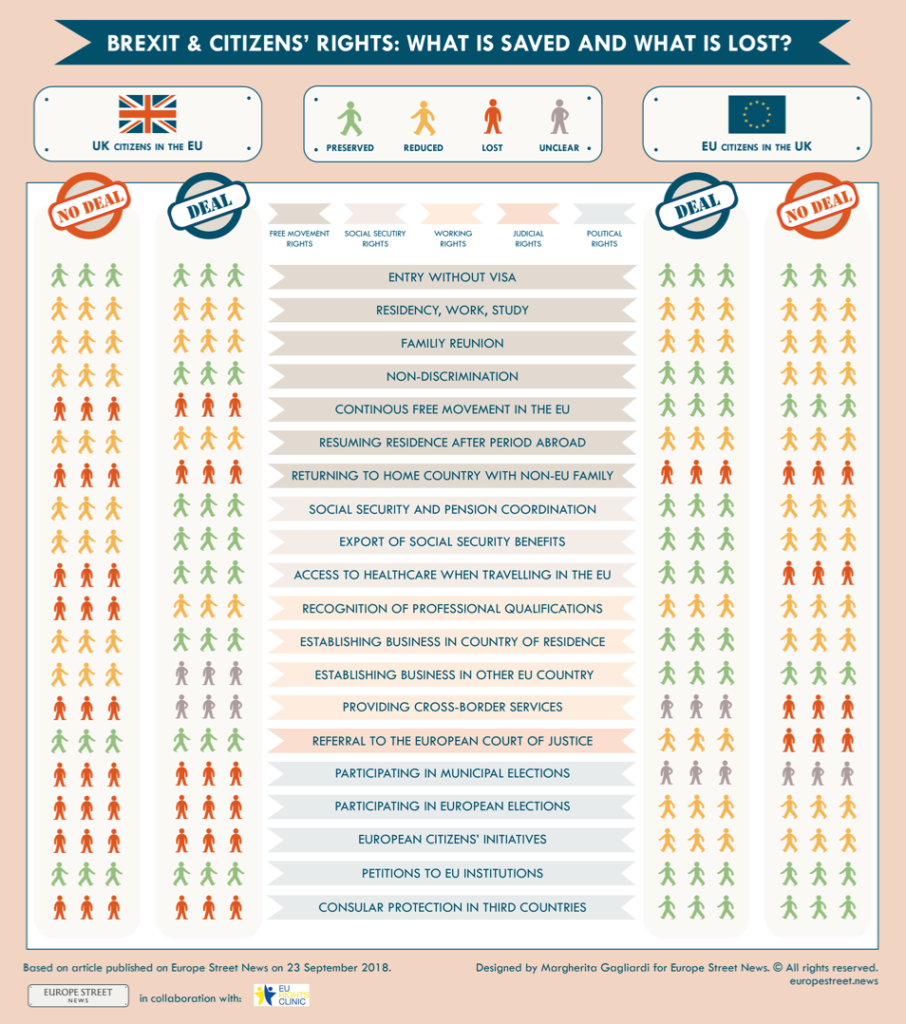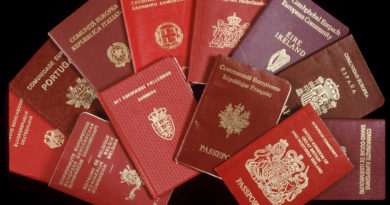UK no deal plan for expatriates leaves questions unanswered
The British government has finally clarified how it intends to guarantee the status of EU nationals in the UK and support British residents in the EU, should the country leave the European Union without a deal. The long-awaited paper was published last week amid uncertainty over the approval of the Brexit deal. But civil rights groups, lawyers and EU experts have criticised the plan, saying that it waters down existing rights and leaves too many questions unanswered.
“Settled status” confirmed
Most of the current rights would be guaranteed with the ratification of the draft withdrawal agreement negotiated by the UK and the EU. But uncertainty remains on what would happen if the Brexit deal fell through.
In its paper, the government maintained some of its earlier promises. In particular, it committed to run the settled status scheme, which has been designed to replace the EU’s permanent residence system. It also confirmed that the main requirement to obtain settled status will be residence in the UK by the Brexit date.
The paper says that people with settled status will have access to benefits, healthcare, social security and education as they do now, without discrimination.
Professional qualifications obtained before Brexit will continue to be recognised. Also confirmed, the possibility to leave the country for five years without losing the right to return under the same terms.
In addition, EU nationals will maintain the right to vote in May 2019 local elections, although it is not clear what will happen afterwards.
Not all right will be guaranteed
Not all rights secured by the withdrawal agreement, however, have been guaranteed.
To begin with, all planned deadlines have been brought forward, with consequences for the effectiveness of the settled status scheme.
Only EU nationals who reside in the UK by 29 March 2019 will be eligible for settled status, while the cut-off date in the Brexit deal is 30 December 2020. In practice, as the online system to receive settled status applications will be fully operational only from 30 March 2019, employers, house owners and service providers will not be able to differentiate EU citizens with the right to stay in the UK and the newly arrived, with inevitable risks of discrimination.
7/ or as @Stuart_McDonald put it correctly: Employers & landlords will not touch EU citizens with a barge pole in fear of heavy fines and punishment resulting from the Govt’s #HostileEnvironment policies. pic.twitter.com/D05J3rj1kC
— the3million (@The3Million) December 6, 2018
In No Deal scenario, government will bring cut-off date for registering forward 6 months (31st December 2020)
— Sunder Katwala (@sundersays) December 6, 2018
Policy
(a) Nobody here before 29.3.19 needs any proof of that for next 21 months.
(b) Nobody after 30.3.19 has right to work yet.
But nobody can tell (a) from (b).
The deadline to apply for settled status is also brought forward to 31 December 2020, instead of 30 June 2021, reducing the time available to inform all those who need to register.
As regards family members, EU citizens with settled status will be able to be joined in the UK by children, spouses and partners, parents and grandparents if the relationship existed by 29 March 2019 (instead of 31 December 2020). But while in the withdrawal agreement this right is permanent, the British government set 29 March 2022 as deadline for family reunions. After that date, tougher UK immigration rules will apply.
If a settled status application is rejected, the right of appeal is also reduced and there will be no chance of preliminary reference to the European Court of Justice. No mention either of the independent authority that was meant to receive complaints, conduct inquiries or bring legal actions on behalf of EU nationals in case something goes wrong. And it will be easier to deport EU citizens for crimes committed after Brexit.
What is missing
Unilateral guarantees cannot cover rights involving more than one country. So the paper is especially vague on the situation of British citizens living elsewhere in the EU. They will essentially depend on rules established by the state where they reside.
If they decide to return to the UK, the government guarantees they will have access to the National Health Service on the same basis of other UK nationals. However, it does not make any commitment on non-British family members returning with them, who can now claim the automatic benefit of EU residence.
Another area that cannot be dealt with unilaterally concerns social security coordination, e.g. the aggregation of pensions contributions paid in different EU countries. On this point, the government aims to recognise past contributions, but is silent about future ones.
“On social security rights there are mitigation measures,” said Anthony Valcke of the EU Rights Clinic. “EU nationals in the UK and British nationals in the EU can benefit from existing bilateral agreements or the Council of Europe’s Interim Agreements on Social Security. EU nationals can also, at least temporarily, rely on the EU withdrawal bill, which has transferred all EU legislation into British law. Yet, none of these options are mentioned in the government paper.”
No reference is made either to the export of benefits to other EU countries (e.g. children allowances for EU workers in the UK with families abroad), or protections for children born after Brexit.
In the event of no deal, European Health Insurance Cards (EHICs) issued in the UK will no longer be accepted when travelling in the EU and vice-versa.
Finally, there are no guarantees that these promises will be permanent as national laws are easier to change than international agreements.
“If the paper was meant to reassure people, it is not fit for purpose,” commented Anthony Valcke. “The only positive aspect is the confirmation of the settled status for EU nationals. On all the rest, the many gaps show the woeful inadequacy of the UK’s no deal plans.”
Bargaining chips
Civil rights group have repeatedly asked negotiators to confirm the citizens’ section of the withdrawal agreement, regardless of the Brexit outcome. The call is growing stronger now that the vote on the Brexit deal in Westminster has been delayed.
“By watering down the rights of EU citizens in case of no-deal Brexit, Theresa May is again using EU citizens as bargaining chips, this time with MPs in order to pass her deal through parliament, after using us as bargaining chip with the EU in the Brexit negotiations,” said Nicolas Hatton, co-chair of the3million, a group defending the rights of EU nationals in the UK.
The coalition of British in Europe commented: “Politicians are playing Russian roulette with our lives.”
Please ring-fence citizens’ rights for @The3Million and @BritishInEurope – we deserve some security after 900 days of living in limbo. The toll this is taking on our families and health cannot be justified. We are all still EU citizens for whom you all have a duty of care. https://t.co/IcrldvbWQj
— British in Europe (@BritishInEurope) December 11, 2018

Table summarising the impacts of no-deal Brexit on EU nationals in the UK and British residents in the EU.
Claudia Delpero © all rights reserved.
This article was published on 11 December 2018 and updated on 16 December 2018 with comments from British in Europe. Photo via Pixabay.





